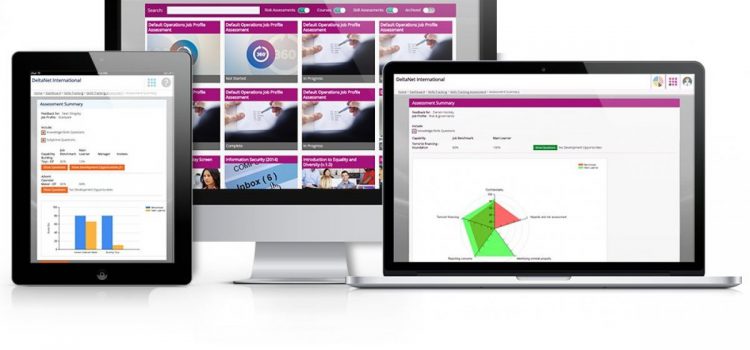Digital disruption has impacted virtually every industry, optimising the way we perform day-to-day tasks and consume products and services.
New technology has also impacted the way we learn and develop our skills at work, creating a workforce that’s more innovative and productive than before, and with better access to training. Many businesses have realised the benefits of leveraging technology in this way and are investing resources into learning and development programs.
When we think of learning in the workplace, implementing a Learning Management System (LMS) has long been the preferred option for businesses delivering mandatory training to employees. Using a traditional LMS, administrators enrol learners on to the required courses and learners can work their way through them, often in a linear and time-sensitive path.
With a Learning Experience Platform (LXP), however, a new, smarter option for learning and development has emerged on the market. Powered by the latest in eLearning technology and compatible with experience API (xAPI), LXPs offer a learner-centric experience with more relevant and personalised training solutions, and the ability to map your own learning paths.
What is an LXP?
Janet Clarey at Bersin by Deloitte defines an LXP as:
“Single-point-of-access, consumer-grade systems composed of integrated technologies enabling learning. They can do many tasks, such as curating and aggregating content, creating learning and career pathways, enabling networking, enhancing skill development, and tracking learning activities delivered via multiple channels and content partners. By delivering on a central platform, LXPs enable businesses to provide an engaging and learning-rich experience and may lessen their reliance on an LMS or talent suite as the learning hub.”
We can think of the LXP as offering a more improved and personalised learning experience, accessible to learners through a single, consolidated platform. LXPs essentially help businesses leverage a wealth of learning resources and assets which can be easily delivered to individual learners with the goal of improving skills and productivity.
Usability
Usability is about effectiveness, efficiency and the overall satisfaction of the learner. With an LMS, administrators can restrict the content available to learners and, in doing so, restrict learners’ control over their own learning pathways. LXPs offer better usability making it possible for learners to engage in content beyond the mandatory training and create their own learning journeys.
LXPs harness technology such as the Experience API (xAPI), which collects behavioural data about learners, and AI, to make smart recommendations and promote learning opportunities. For example, how often the learner has logged into the LXP to complete a course, when the learner explores a related article, and so on. Every action is stored within a Learning Record Store (LRS) unique to each user, which helps the LXP to become a user-friendly resource for learning new skills as well as completing mandatory training. Using Machine Learning, a form of AI, an LXP enriches learning in the workplace into a highly personalised experience – the more you learn through the LXP, the better it will get to know the learner and, their preferences and requirements.
Content
One of the LXP’s strengths is the way relevant, personalised content is presented to the learner.
The xAPI works as a data collector, turning learning experiences into data so that it can recommend the most relevant learning opportunities for each person. This system is good for career development and risk management.
Through xAPI, an LXP can present learners with varied learning experiences that might be broken up into recommended, relevant learning opportunities, for example, “recommended for you” or “popular in your company”. They can then choose a learning path that aids in their career development, rather than one imposed from the top down. For businesses, it means improved visibility into learner data that can help with risk management and identifying gaps in skills.
Continuity
Even the most engaging content can become an afterthought with a busy workload, especially if it takes people out of their daily work tasks for long periods. LXPs aim to provide a seamless learning experience, encouraging learning in the flow of work. eLearning, therefore, doesn’t become “an extra task” to squeeze into somebody’s working day; it becomes an integral part of their routine, giving access to the courses they need and want, on the device of their choice and at the times they require it.
The growth of mobile technology and 5G has changed the way learners are consuming eLearning. Training is no longer restricted to the desktop or through a web-based browser. LXPs make it possible for learners to access learning resources on the go, on a variety of devices. Content delivered through an LXP can also be optimised for the device the learner is using.


